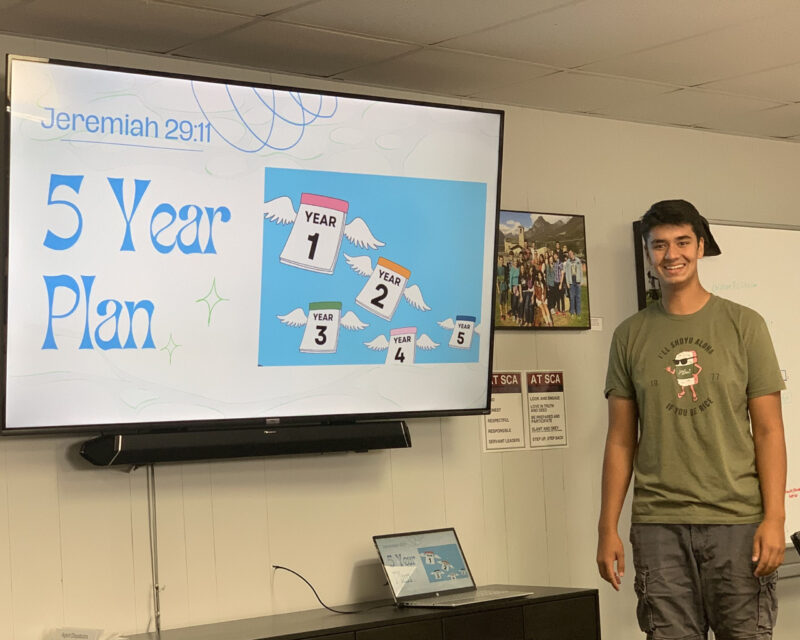
In today’s fast-paced world, planning for the future can feel overwhelming, especially for high school seniors on the brink of graduation. Recently, Scott Mac Leod, Summit’s Head of School, addressed this challenge head-on, outlining a structured approach to help our seniors develop a comprehensive five-year plan. This initiative not only equips our upcoming graduates with essential skills but also fosters a supportive environment for families.
At the heart of this initiative is a five-year planning model designed to guide students in articulating their goals and aspirations post-graduation. Over the last few weeks, each senior has prepared their plan and presented it to their school administrators including Mrs. Nunez, our Secondary Principal, and Mrs. Ten Brook, our College Guidance Counselor. The process encourages students to engage deeply with questions that help clarify their future objectives. The flexibility in how they present their answers—whether through a document, a slide presentation, or their own unique format—acknowledges individual learning styles and preferences.
A standout aspect of this planning model is the requirement for students to involve their parents in the process. This collaboration aims to demystify the planning experience and reduce anxiety surrounding the transition to adulthood. By working together on provided questions and budget examples, families can help students gain a clearer understanding of their options and the steps necessary to achieve their goals. The questions provided range in topic from how the students plan to achieve their academic goals and if they have their personal documentation in order, to uncovering their spiritual goals and their relationship with God.
The benefits of early planning extend beyond just academic success. According to research, mastering executive functioning skills such as planning and goal-setting can significantly enhance a student’s sense of control over their future. This sense of agency can alleviate stress and anxiety, contributing positively to their overall well-being. By fostering a proactive approach to their future, students can feel more confident and prepared as they transition from high school to the next phase of their lives.
To support their seniors in this initiative, parents are encouraged to help answer questions and collaborate with their student to find their answers to the planning questions. This conversation can open pathways to understanding their aspirations and concerns. Additionally, parents are able to guide their students using their own life experiences.
Once students begin to formulate their plan and goals, families then build a post-high school budget by assisting in creating a realistic budget that considers potential expenses, whether that includes college tuition, living costs, or other post-graduation plans. The students also have the opportunity to work through Dave Ramsey’s Foundations in Personal Finance course, which teaches the basics of budgeting, saving, investing, and more.
Throughout this planning process, families are faced with the reality that their student is rapidly approaching graduation. The blessing of utilizing the five-year planning model is that their student is not navigating this process alone. Encouragement and reassurance can significantly reduce feelings of isolation and anxiety, not only for our seniors, but their families as well.
As students embark on this critical phase of their lives, the five-year planning model serves as a valuable tool for both academic and personal development. By fostering collaboration between students and their families, SCA is not only preparing students for success post-graduation but also nurturing a supportive community. This journey is not just about planning—it’s about building confidence, reducing stress, and embracing the future together.